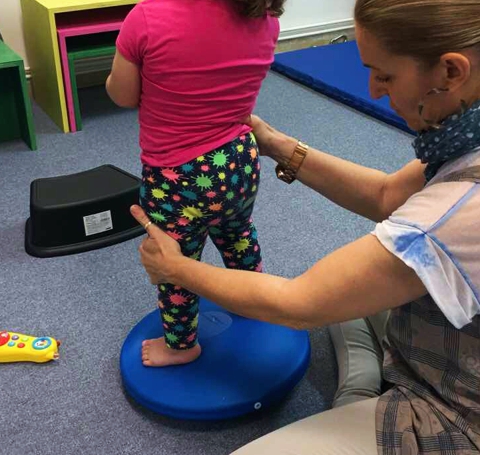What is Music Therapy and what is its significance?
Music therapy is the appropriate use of music and musical elements to support, improve or restore mental, physical, emotional and spiritual health. Music provides a “rhythmic organization”, which can be transferred to other social structures, such as school and home, since rhythm is an essential element of movement and life. Therefore, the physical expression, which arises from the need of the participant to move in order to be expressed simultaneously through his own body, plays a fundamental role in music therapy. In addition, music therapy is practiced by specially trained music therapists and its purpose is not to develop an artistic result but a therapeutic one.
Research supports that there is a connection between speech and song as well as rhythm and movement. Music therapy applies its therapeutic work through the beneficial properties of music. Specifically, through the structural elements of music, such as rhythm, melody and volume, it is used as a means of communication and creative expression in people with different types of disorders. Consequently, since any kind of disorder has an emotional impact on people’s life, music therapy is the most appropriate tool for mental improvement and development.
Who is Music Therapy for?
Music therapy is aimed at children and adults who need support with their emotional and communicative development. It is aimed at people of all ages, with motor, mental or emotional disorders, behavioral or communication problems, or learning disabilities. More specifically, it is addressed to people with:
- Mental retardation
- Hearing problems
- Vision problems
- Down Syndrome
- Cerebral palsy
- Developmental disorders
- Neurological disorders
- Prematurity
- ADHD
- Anxiety
- Depression
- Phobias
- Schizophrenia
- Aggressive behavior
- Dementia
- Alzheimer’s disease
- Dependencies
- Heart disease
- Learning problems
- Mental tension
- Chronic or acute pain
- Need for support in times of change
- Need for creative expression, without the need for musical knowledge
- During childbirth
What are the benefits of music therapy?
Research has claimed that people receiving music therapy have shown improvement in many different areas of their lives. Therefore, music therapy aims at:
- Development of social and communication skills
- Development of speech
- Development of attention and concentration
- Development of eye contact
- Development of motor skills and coordination
- Development of initiative
- Development of self-esteem
- Development of self-confidence
- Emotional support
- Creative expression
- Reduction of fear and anxiety
What happens during a music therapy session?
During a music therapy session, the therapist and the participant create a musical activity in a safe environment, either through listening or interacting with simple musical instruments. In order for a person to benefit from music therapy, he doesn’t need to have special musical skills, while there is no particular form of music that is more effective than another one. The individual’s preferences and the individual treatment needs will determine the type of music and the techniques of music therapy that the therapist will apply in each case.
Initially, the music therapist evaluates the emotional and physical condition of the patient, as well as the level of his communicative skills. Then, they “build” the musical activity according to the patient’s abilities through singing, vocal improvisation, yodels, playing musical instruments, simple or more complex, and music-motor activities. Their ultimate goal is to create a safe environment and develop skills through personal and creative expression of emotions and movement.


